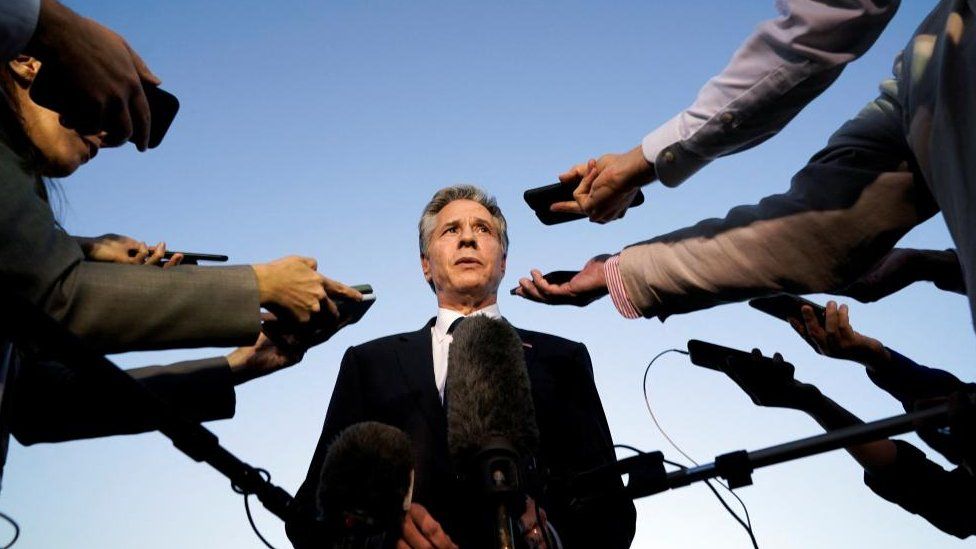-

-
-
Loading

Loading

President Joe Biden's decision to visit Israel is the culmination of a week of intense US diplomacy aimed at supporting its closest Middle East ally and preventing the conflict between Israel and Hamas from spreading further. The US is concerned that the audacity of the Hamas attack and the ferocity of Israel's response could lead to violence in the West Bank and beyond. Secretary of State Antony Blinken, who has been on a whirlwind tour of the Middle East, will accompany President Biden. Blinken has emphasized full US support for Israel's forceful response to the Hamas raid, which resulted in the deaths of over 1,400 Israelis. However, he is also trying to mitigate civilian casualties in Gaza, which is governed by Hamas. Israel's relentless airstrikes have already killed nearly 3,000 Palestinians and have caused a humanitarian crisis with shortages of food, water, and electricity. Blinken's goal during his tour of America's Arab allies was to secure their condemnation of Hamas and limit criticism of Israel's military campaign. Only Bahrain and the United Arab Emirates publicly denounced Hamas, while others focused on the humanitarian tragedy unfolding in Gaza. Arab governments are concerned that a prolonged Israeli ground operation could incite their populations, who support the Palestinian cause, and destabilize their countries. Despite concerns about the potential provocation of Biden's visit to Israel, some analysts believe it may help underline a private message of restraint if the president chooses to deliver one. Biden will also meet with leaders from Egypt, Jordan, and the Palestinian Authority to discuss humanitarian issues and the establishment of "safe zones" in Gaza. The US has agreed with Israel to explore ways to provide humanitarian aid to Gaza, but it will not challenge Israel's assessment of Hamas. US officials have adopted Israeli language that compares Hamas to the Islamic State and downplays legitimate frustrations with Israeli occupation and the blockade of Gaza. Critics argue that US policy towards the Israeli-Palestinian conflict has been characterized by neglect and a lack of prioritization. The Biden administration has sought to integrate Israel into the region through normalization agreements with Arab countries while shifting its attention to other global issues. The US is worried that the conflict could escalate into a regional war and is particularly concerned about Iran's involvement through its support for groups like Hezbollah. Iran's Foreign Minister has met with Hamas representatives to discuss preventing further Israeli assault on Gaza. However, Iran has so far shown relative restraint. To demonstrate its support for Israel, the US has sent two aircraft carrier strike groups to the eastern Mediterranean as a deterrent. Standing by Israel is crucial for the US to maintain its commitment to regional allies like Saudi Arabia and the UAE. The US will continue to support Israel, but the question remains at what cost and how it will affect its ability to shape future strategic realities.